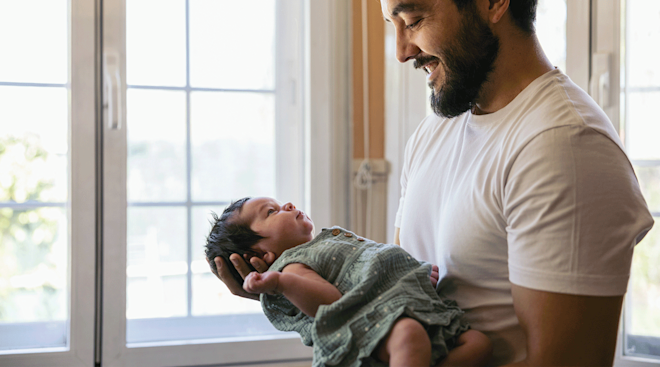Survey: Most Parents Don’t Realize Their Kid Is at Risk for Obesity
The majority of parents underestimate how overweight their child actually is, a 2019 survey from the European Congress on Obesity (ECO) says. The findings featured 87 studies conducted worldwide between 2000 and 2018, which spanned more than 24,000 children ages 0 to 19 and their parents.
The amount of children and adolescents with obesity has increased by 10 times in the past four decades worldwide. We’re seeing an increase from 5 million girls in 1975 to 50 million in 2016, and from 6 million to 74 million boys. Very few children who are overweight or obese receive the propper attention, according to the survey.
"Despite attempts to raise public awareness of the obesity problem, our findings indicate that underestimation of child higher weight status is very common,” says study lead researcher Abrar Alshahrani.
Alshahrani and his team from the University of Nottingham investigated the risk factors associated with overlooking a child’s higher weight status by reviewing studies that assessed caregivers, children and healthcare professional’s perceptions of children’s weight and compared this with medical standards. They found 55 percent of parents underestimated how overweight their child was, and 34 percent of children and adolescents also underestimated their own weight status. It also found healthcare professionals shared this misconception to a degree, but there weren’t enough studies available to attain a definitive amount.
What’s more alarming, parents of younger children were less likely to perceive their child as overweight, and were less accurate at judging the weight of boys than girls. A healthy lifestyle starts from day one, and habits enforced at a young age will set the stage for a healthy kid, teen and adult later in life. Additionally, parents who were overweight themselves were also less likely to accurately assess their child’s higher weight. One thing to keep in mind, however, is that ethnicity and cultural norms may also have an effect on parental misperception, as some cultures prefer a larger body type and may not identify their child as overweight.
“Identifying weight problems in childhood and adolescence is a unique window of opportunity to have a lifetime impact on health,” says Alshahrani. “The results suggest that underestimation of child overweight status is highly prevalent. Addressing the factors which lead to inaccuracy in assessing child weight will have a positive impact on communication between children, parents and health professionals, and aid the mutual recognition of children’s higher weight status.”
Not sure how to get your little one on track? The secret to success is to encourage them to play more, sit less and get a good night’s sleep, according to the World Health Organization’s guidelines for raising a healthy kid.
Please note: The Bump and the materials and information it contains are not intended to, and do not constitute, medical or other health advice or diagnosis and should not be used as such. You should always consult with a qualified physician or health professional about your specific circumstances.
Navigate forward to interact with the calendar and select a date. Press the question mark key to get the keyboard shortcuts for changing dates.




















































